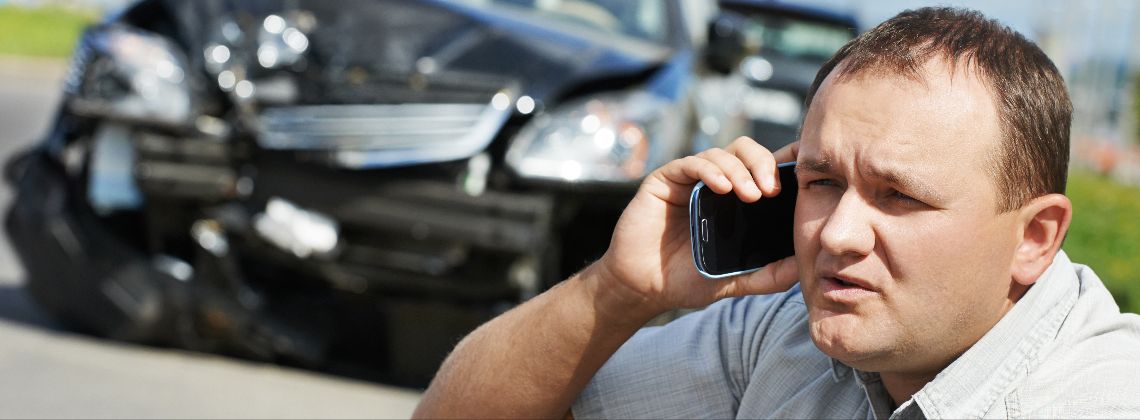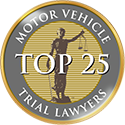
You Have the Right To Remain Silent…A Miranda Warning for Car Accident Victims
If you have watched any of the cop shows or legal dramas that have been on the air over the past several decades then you are likely familiar with what is known as the “Miranda Warning” that is read to criminal suspects usually right after they are arrested (at least on TV). It generally goes something like this:
“You have the right to remain silent. If you give up the right to remain silent, anything you say can and will be used against you in a court of law. You have the right to an attorney. If you cannot afford an attorney, one will be appointed for you prior to any questioning.”
The Miranda Warning has been around since the 1966 landmark United States Supreme Court case of Miranda v. Arizona. In that case, the United States Supreme Court decided that the Constitution required that before the police can interrogate a suspect in custody they must advise or warn them of their constitutional rights so that they can make an informed decision about whether or not to talk to the police.
So what does all of this have to do with car accidents?
Most people would never think of the Miranda Warning in the context of a car accident because police officers rarely interrogate the parties involved in an accident even though traffic charges (and occasionally more serious charges) often result. It is important to be very careful and thoughtful about what you tell the police at the scene of an accident because they are making a report of what you say regarding how the accident occurred and whether you are injured.
But there is someone other than the police who will always want to thoroughly interrogate you as soon as possible after a car accident – the insurance adjuster or claims representative. If you are injured in a car accident that is not your fault, the other driver’s insurance company will want to talk to you as soon as possible after they find out about the accident.
They will want to know every detail you can remember about how the accident occurred and any and all injuries you are experiencing. But because they are not police officers or government agents and are not bringing criminal charges, there is no requirement under the law that they give you a Miranda Warning or otherwise warn you of your legal rights before you speak to them.
Thus, it is up to you to know your rights, and an easy way to remember them after a car accident when an insurance adjuster or claims representative calls to interrogate you and get a recorded statement from you (often under the guise of having a friendly conversation necessary to process your insurance claim) is by using the Miranda Warning that you already know.
Let’s see how it can help you when you are contacted by an insurance adjuster:
1. You have the right to remain silent. If you give up the right to remain silent anything you say can and will be used against you in a court of law.
Just like you have the right to remain silent when faced with police questioning you also have the right to remain silent when being questioned by the other driver’s insurance adjuster. So many people do not realize that you are under absolutely no obligation to speak to the other driver’s insurance company or provide a recorded statement when you make an insurance claim. We have written a separate article just about this topic here called “Giving A Recorded Statement To The Insurance Company–Be Careful.”
Some adjusters or claims representatives will tell you that if they do not get a recorded statement from you then they cannot process your insurance claim. Do not believe it. In Georgia, the insurance company is required to process and adjust your claim in good faith whether you give them a statement or not.
One of the main reasons they want to get a recorded statement from you is so that they can try to use it against you down the road if your story changes in the slightest or if you later realize you are more injured than you first thought and seek compensation for an injury you did not report right after the accident in your recorded statement. Like the Miranda Warning says, anything you say to the insurance company can and will be used against you in a court of law – in this case, a lawsuit – down the road.
The purpose of the recorded statement is to help the insurance company, not you. Like any business, the insurance company’s goal is to keep their expenses as low as possible which means paying you as little as possible on your claim. During the recorded statement, their trained claims representatives are looking for information they might be able to use later to try to reduce the amount they have to pay you for your injuries. Do not help them by unknowingly providing them information in a recorded statement that they can later use against you in court when you are fighting to get full and fair compensation for your injuries.
You have a right to remain silent, and you should always exercise that right when it comes to questions from the other driver’s insurance company at least until you have first spoken with an attorney. If an attorney tells you that you have a case they will take on, then the attorney will present your side of the case to the insurance adjuster, which is always a better option than you presenting your own side of the case to a trained insurance representative.
2. You have a right to an attorney.
As a car accident victim, you have a right to consult with an attorney and have that attorney represent you during all phases of the insurance claims process. It is always the best idea to contact an attorney as soon as possible after the accident to discuss the facts and your legal rights before you have any contact with the other driver’s insurance company.
While there is no such thing as a court-appointed attorney or public defender in the personal injury context, the good news is almost all personal injury attorneys offer free initial consultations and work on contingency fees. That means it usually does not cost you anything out of your pocket upfront to speak to a car accident attorney. The attorney will get paid at the conclusion of your case out of any settlement or judgment they obtain for you, and if they do not recover anything for you, you typically do not owe them any attorney’s fees.
The lack of any up-front cost means there is no reason anybody cannot afford to contact a personal injury attorney as soon as possible after being in a car accident. At times, insurance companies may try to discourage you from getting an attorney involved by telling you it will only complicate matters and cost you money.
Again, do not believe it. What having an experienced attorney on your side actually means is that you know you will be getting fair value out of your case if you decide to settle your claim with full knowledge of all of the pros and cons. Plus, good personal injury attorneys pride themselves on adding enough value to your claim to justify the contingency fee they will get for their work. Research has repeatedly shown that injured parties who are represented by attorneys consistently get higher settlements from insurance companies than people who are not represented.
Yes, it may slow the process down somewhat to hire an attorney, but that is only because it takes time for your attorney to review your case and make sure you know the full extent of all of your injuries before they can determine a proper settlement value to seek for your case. The insurance company knows if they can quickly throw some money at you to get you to settle your insurance claim before you hire an attorney, most of the time they will save a significant amount of money over what they would have had to pay you if they had waited for you to hire an attorney and figure out the full extent of your injuries and fair value of your claim.
Do not fall for it. Contact an experienced personal injury attorney to discuss your case before you speak to or accept anything from the insurance company.
So if you are injured in a car accident that is not your fault, remember your Miranda Warning when it comes to the insurance company. Remain silent and contact an experienced personal injury attorney as soon as possible.









